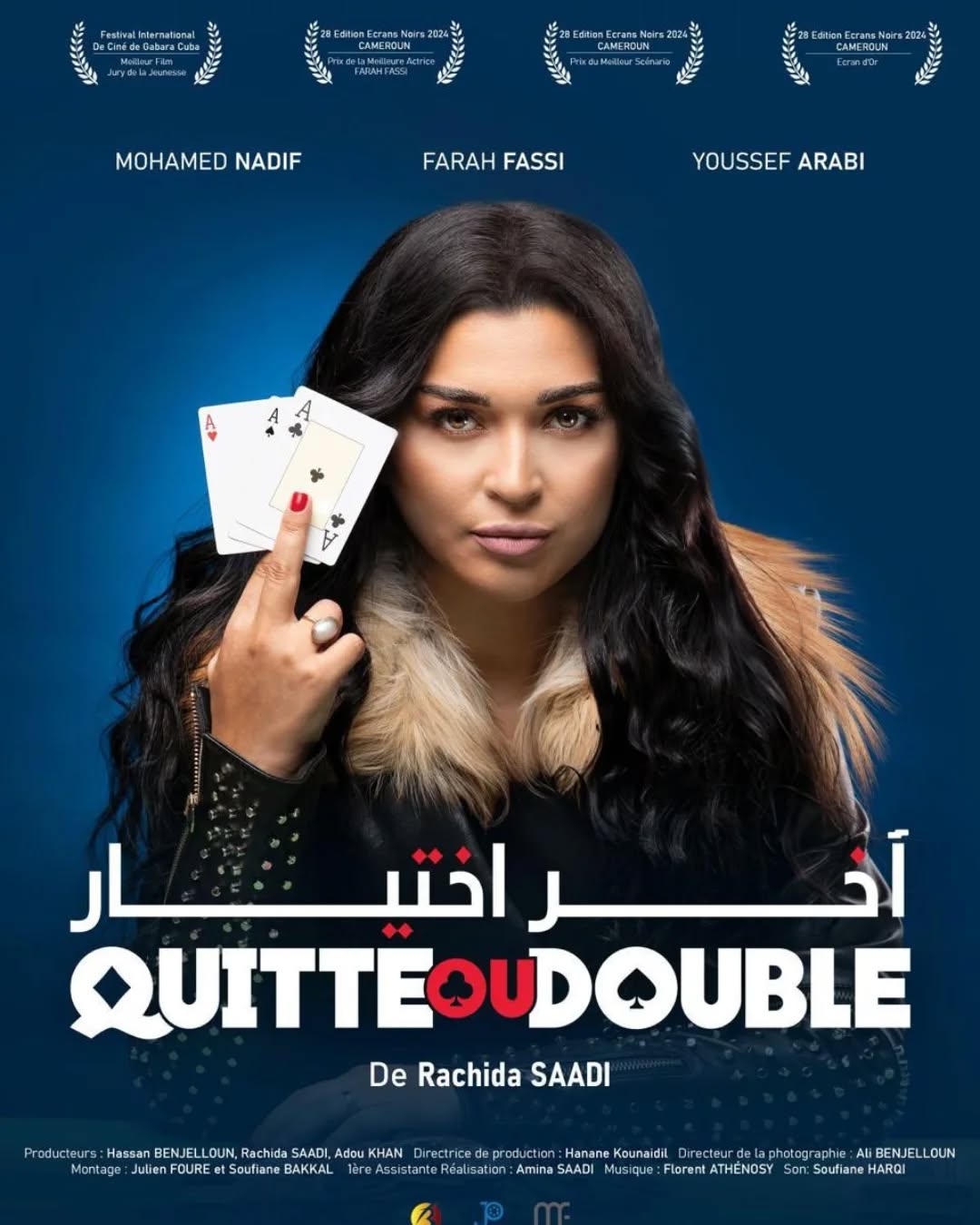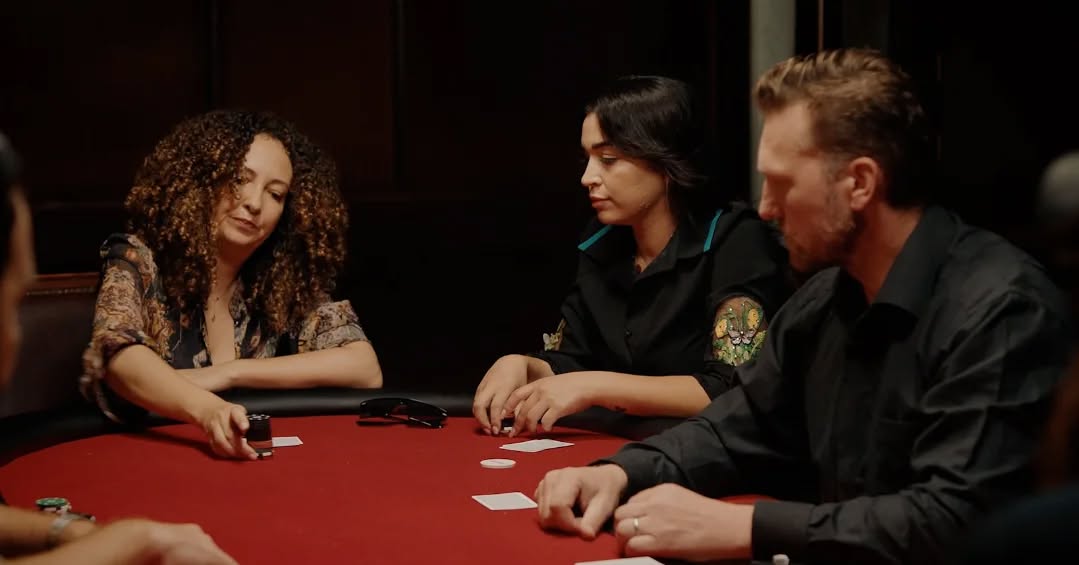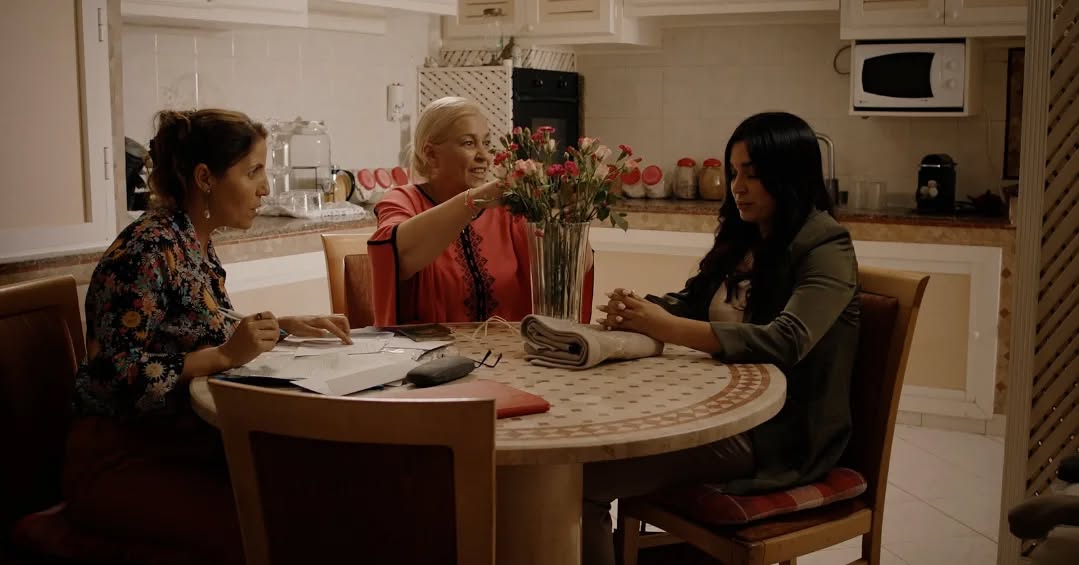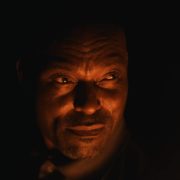Double or Nothing feels tonally inconsistent, unsure whether to lean into satire, tragedy, or domestic melodrama.
By Joseph Jonathan
At the intersection of love, money, and moral decay lies a timeless cinematic terrain, one that countless filmmakers have mined to reveal the fragility of human desire. Double or Nothing (Quitte ou Double), directed by Moroccan filmmaker Rachida Saadi, enters that space with a story that promises tension and emotional turmoil but ultimately settles for surface-level melodrama.
The film follows Mehdi (Mohamed Nadif), a wealthy pharmacist whose ordered world begins to unravel after he marries the alluring Noura (Farah El Fassi). Beneath Noura’s grace and charm lies a dangerous obsession: a compulsive addiction to poker. As her debts mount and Mehdi’s health deteriorates, Noura takes a fateful step — gambling away the money from their pharmacy in a desperate attempt to restore what she has lost. When Mehdi uncovers the truth, his demand for a divorce sets off a spiral of guilt, grief, and emotional ruin.
Saadi’s premise is rich with potential: a study of love as a wager, of addiction as both psychological and moral collapse. Yet, despite its intriguing setup, the story never quite evolves into the compelling psychological drama it aims to be. The script keeps events on a predictable track, moving from crisis to consequence without ever allowing its characters to breathe, wrestle, or transform in meaningful ways.

There’s little sense of escalation in Noura’s addiction; her descent feels abrupt, more told than shown. The film misses opportunities to explore the social and emotional context that might have made her obsession believable — what emptiness drives her to gamble? What power or thrill does she find in the risk? By avoiding these deeper questions, Double or Nothing turns what could have been an intimate portrait of compulsion into a simplified morality tale.
The emotional stakes of Double or Nothing rely heavily on its central relationship — the bond between Noura and Mehdi — but that relationship feels underwritten. Mehdi is painted as the archetypal “good man”, generous but naïve, while Noura oscillates between victim and villain without the psychological shading that could make her tragic rather than merely flawed.
Farah El Fassi, however, delivers the film’s standout performance. She carries Noura’s contradictions with visible effort, hinting at the anguish beneath the surface even when the screenplay doesn’t give her much to work with. Her eyes often say more than the dialogue does, conveying guilt, hunger, and a desperate longing for escape. Mohamed Nadif’s Mehdi, in contrast, feels restrained to the point of detachment, more an observer of the film’s events than an active participant in them.

Rachida Saadi directs with competence but little daring. The film’s visual language — clean, steady, but conventional — mirrors its narrative caution. There are a few stylistic risks, few moments where the camera lingers long enough to draw us into the emotional chaos it’s depicting. Even scenes that should pulse with tension — a poker table showdown, a marital confrontation — feel curiously flat.
The humor, too, struggles to find rhythm. There are moments clearly intended as light relief, but the comedic beats often land awkwardly, undercutting rather than complementing the drama. As a result, Double or Nothing feels tonally inconsistent, unsure whether to lean into satire, tragedy, or domestic melodrama.
At its best, Double or Nothing gestures toward bigger questions — about the seduction of risk, the fragility of middle-class respectability, and the gendered dynamics of shame. In Morocco, where social appearances carry immense weight, Noura’s addiction could have served as a metaphor for women’s quiet rebellions against societal control. But the film never dives that deep. It treats her gambling more as a plot device than as social commentary, missing the opportunity to examine how repression, isolation, and gendered expectations might push a woman like Noura to the edge.

There is a sincerity in Double or Nothing that makes its shortcomings all the more frustrating. Rachida Saadi’s film wants to interrogate the consequences of unchecked desire and moral compromise, but its storytelling remains too neat, too risk-averse. The emotions stay at the surface; the cinematic stakes never rise high enough to match the thematic ambition.
What lingers most, then, is Farah El Fassi’s performance; a portrait of fragility caught between love and self-destruction. Her Noura is the film’s lone beating heart, reminding us that even in a story that plays it safe, a committed performer can still make us care.
In the end, Double or Nothing (Quitte ou Double) is a gamble that doesn’t quite pay off. It deals a handful of promises, but somewhere between script and screen, it folds too early.
Rating: 2.2/5
*Double or Nothing (Quitte ou Double) had its premiere in Moroccan cinemas before screening at the Abuja International Film Festival (AIFF) 2025.
Joseph Jonathan is a historian who seeks to understand how film shapes our cultural identity as a people. He believes that history is more about the future than the past. When he’s not writing about film, you can catch him listening to music or discussing politics. He tweets @Chukwu2big.




